Your statement says your photography seeks to expose what you fear only appears in your mind. Can you expand on this idea? How do inner fears become visible in your work?
Like all art, Photography is incredibly subjective. I look at some celebrated photographs and think it’s really nothing special. Then I’ll look at something taken by a friend, or something I stumble across on Instagram, and think it’s one of the most incredible shots I’ve ever seen. That’s just the way our eyes and brain work. But there are three components to how I approach photography: the eye, the creativity, and the technique. You can invest in all the best equipment and spend hours editing. But if you didn’t capture the shot, if you didn’t replicate what your mind was seeing, it’s not going to accomplish what you want. Me, personally? I’ll be honest with you here. I have photographer friends who can tell you the specs of their cameras like their favorite athlete’s stats. They can tell you the benefits of one camera over another on a level of detail that reminds me of a scientist. That’s not me. That stuff bores me. If it can capture what I see in my mind, if it allows my creativity to flourish, then I’m all set. For me that’s the Fujifilm X-S10. It fits in my relatively small hands, it has the necessary settings, and captures a beautiful picture. That’s all I need. When I’m shooting, when I’m editing, I specifically try to show the world what my eyes are seeing, what my brain is understanding. Often, as my artist’s statement says, that’s bright colors and stark contrasts. That’s how I see the world. And as far as my fear, I suppose it’s motivated by a bit of feeling alone, in how I see it. I often wonder why others don’t always see the world how I see it, you know?
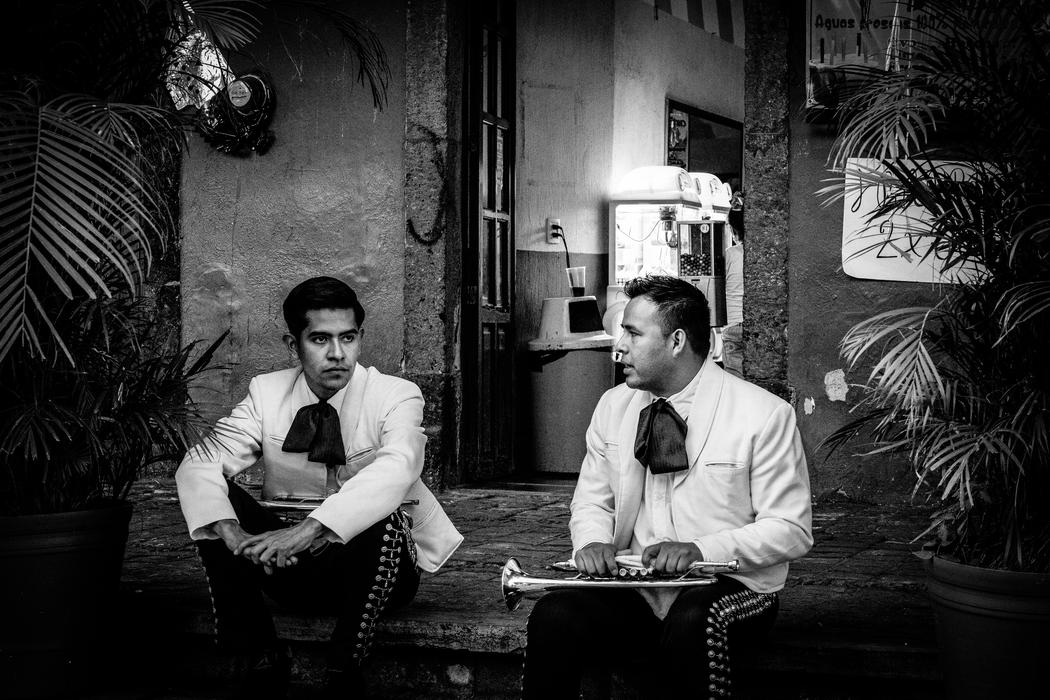 Jay Shifman | When The Song Ends | 2025
Jay Shifman | When The Song Ends | 2025
Many of your photographs carry overt political and social messages. What role do you believe photography plays in activism and resistance?
I enjoy photography for three reasons: fun, beauty, and the story. I rarely leave my house without my camera on my hip because you never know what you’re going to see. For example, one of my greatest passions in life is the fight for Abolition, the defunding and eventual abolishment of police and prisons. I had a desire to do a show on the topic. I drafted my wife, Lauren, who runs Flashpoint with me and also cares deeply about this issue, to help me with that. It was called “Exposing The Threat” and it featured over 20 often violent photographs of police captured here in Philadelphia, mostly at protests but a few simply perpetrating everyday violence around town. We paired these with facts about policing taken from over 100 studies and other primary sources. Our goal was to show that much of what people believe about policing and public safety in this country is flat out false. We are sold an egregiously bad lie, about how police “solve crimes” and “keep us safe”. We are working now on turning that show into a Zine to share with people because we feel it’s so important. I tell this story because are the pictures beautiful? Sure, in some ways. I think a lot of them are incredibly shot and wonderfully presented, although obviously I’m biased there. Was it fun taking them? Yeah, although a few in particular led to me being physically assaulted by the police, one assault, actually, I happened to capture on my phone and we worked that video into the exhibit. But, more importantly, do they educate and tell a story? Without a doubt. And that’s the true mission.
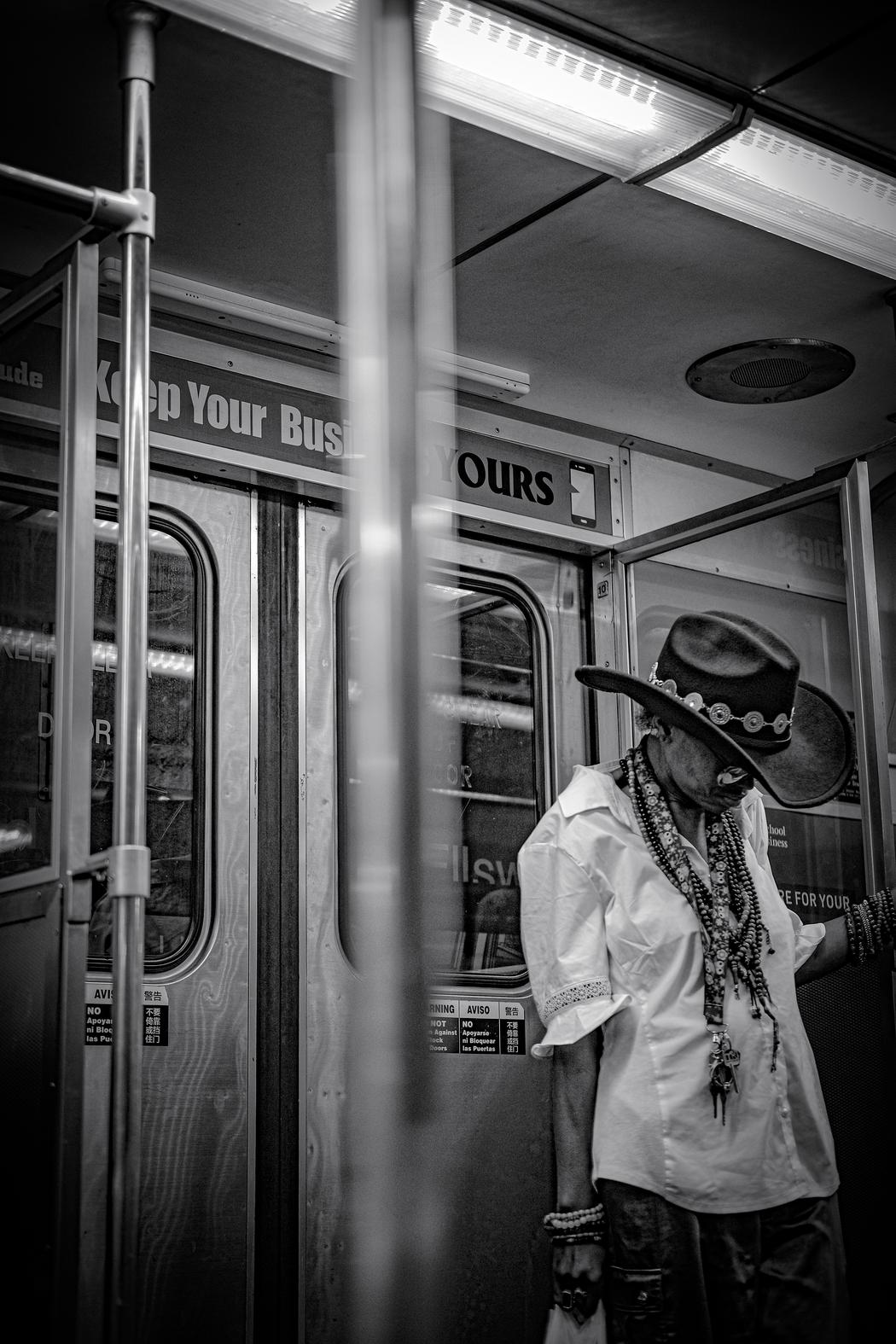 Jay Shifman | Next Stop | 2025
Jay Shifman | Next Stop | 2025
Your images often feature stark contrasts and bright colors. How do you decide on this visual language, and what emotions or reactions are you hoping to provoke?
Yeah I mean, as I mentioned before, the reason for that is it’s how I see the world. Brightly, and starkly divided. I don’t really consider this a choice. When I’m editing, when I’m shooting, it’s just replicating this. It’s me being honest, in a way. Wanting people to see what I see. So what do I hope people take away? I want them to see the beauty that I see. I want them to see through my eyes and feel what I’m feeling in that particular moment, which, of course, is different depending on the photo.
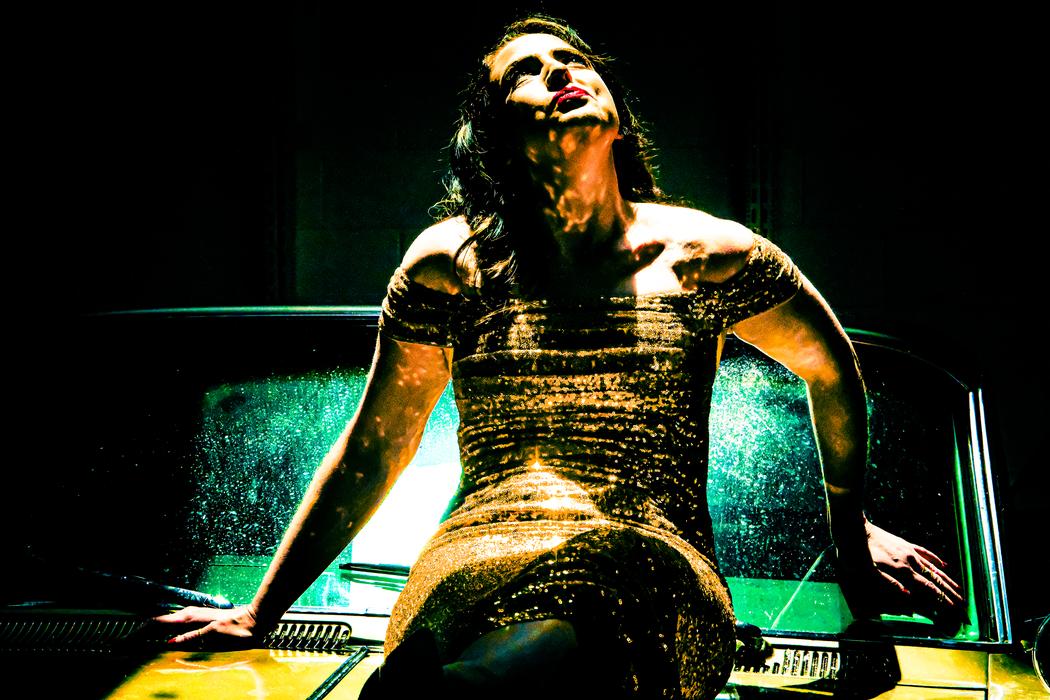 Jay Shifman | I See The Stars In You | 2025
Jay Shifman | I See The Stars In You | 2025
As someone who documents protests and the violent response from the police, how do you balance artistic creation with the risks of being in those situations?
Well, I guess the answer is I don’t. As you read before, I was assaulted by a cop at a very public protest. It was outside the Presidential Debate in late 2024, between Donald Trump and Kamala Harris, which was here in Philly. Thousands marched. The police became violent at one point, and my camera didn’t protect me. I was on the front lines, and a cop raised his bike into the air and used it to bash me and my camera to the ground. Another time, more recently, at an anti-ICE protest, a cop on a motorbike drove straight into me and intentionally knocked me off my bike. No joke, I have a dent in my ass that my doctor says is permanent from that one. But I take two things into account. Number one, I am a white, cis man who comes from enormous privilege. That gives me some protection and, more importantly, means I can afford healthcare in a country that works so hard to deny that from people. So, I take that into account when I put myself in these situations. On the other hand, I have some health challenges that are catching up to me that may mean my days of being on the front lines are coming to an end. All the same, you won’t find me hanging back when it’s truly important. After that first assault, you didn’t see any of the police violence in the news. Nor did a SINGLE politician speak out against the violent arm of the state being used against every day Americans using their First Amendment right to protest. All of this despite it happening outside one of the most televised events in the history of the world. So if people like me aren’t there capturing what’s really happening, all people will hear is the absurd propaganda that makes the New York Times or Fox News. That’s why I, and others who care about this sort of thing, do what we do.
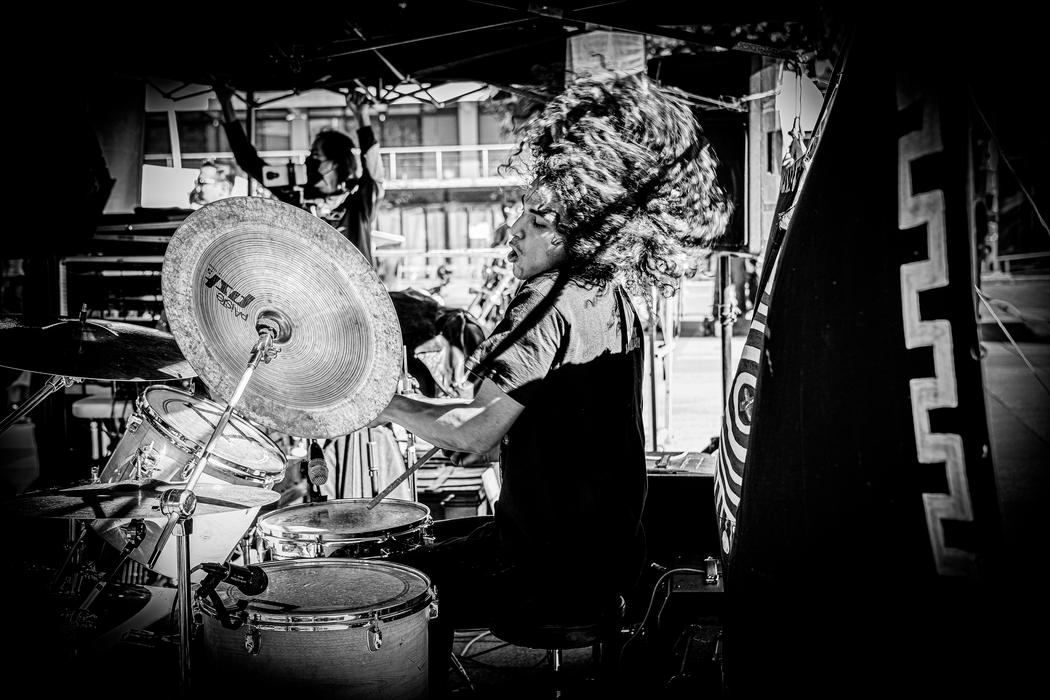 Jay Shifman | Freedom | 2025
Jay Shifman | Freedom | 2025
You run Flashpoint Gallery and Community Space with your partner. How does the gallery’s mission connect with your own artistic practice?
Lauren and I started Flashpoint in late Winter, 2025 for two reasons. First, I wanted to do the provocative show I mentioned earlier and was struggling with finding a space to hold it. Eventually it became “Exposing The Threat” which was our first show. Second, we spent the last half a decade in the streets marching at times weekly for causes we care about. From ending the genocide in Gaza to supporting access to abortion to demanding this country stop treating Black and brown people as less, the list goes on. Eventually we stepped back and realized we’d lost, or at least hadn’t gotten very far, on every single one of these fights. Not that protesting isn’t incredibly important because it is. We just decided that we personally needed to do something else in addition. That’s where Flashpoint came from. Since opening we’ve had thousands of people come through the doors for everything from art shows to meet ups to organizing meetings. And we don’t charge them anything. It’s super important to us to be running a true, anti-capitalist space at a time when the establishment is trying as hard as they can to remove the ability to simply exist for so many of our friends and neighbors. But yeah, without my photography we probably wouldn’t have opened Flashpoint, which would be a shame.
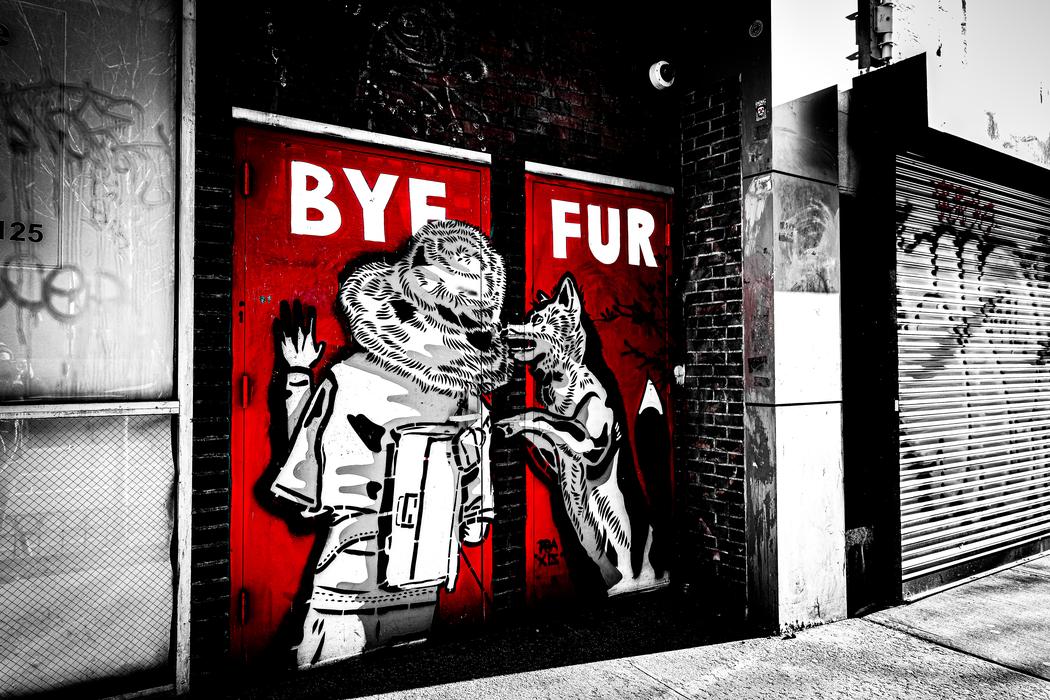 Jay Shifman | Bye Fur | 2025
Jay Shifman | Bye Fur | 2025
Do you see your poetry and photography as separate creative practices, or do they influence and enrich each other?
Oh man now you’re asking me to be philosophical and introspective which aren’t my strengths. I know, that’s funny for a person who writes a lot of poetry to say but it’s true. I guess they are related, as evidenced by the numerous places that have published both my poetry and photography simultaneously. Much of my poetry, like my photography, is overtly focused on the political. And I don’t mean just electoral politics, although I do write about and photograph that too. I mean the political reality of living in this country. Recently I had poetry and a photograph published together in a wonderful journal called Radical Catalyst. The photo was a black and white shot of a sticker someone put up here in Philly saying Riots Work. I called it “They Do”. That’s political, at least how I understand it. My ideas around what is political has greatly been influenced by thinkers like Angela Davis, Ijeoma Oluo, Keeaga-Yamahtta Taylor, the work of Howard Zinn and on and on. And I can’t separate myself from these ideas when I’m working, be it poetry or photography. So in that way they’re certainly related.
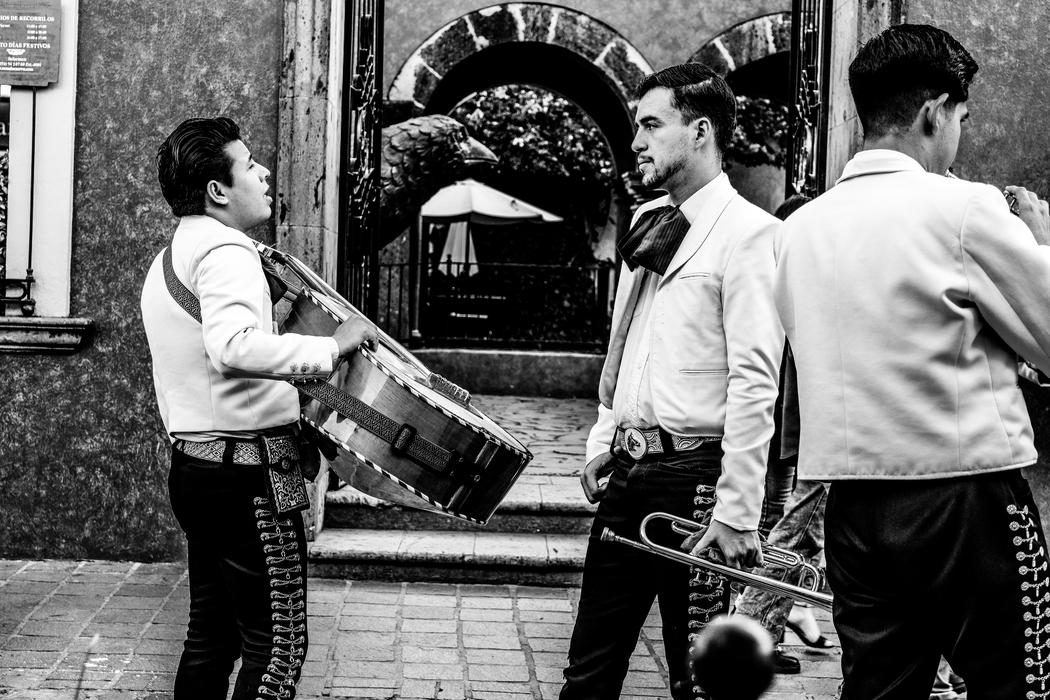 Jay Shifman | Calamity | 2025
Jay Shifman | Calamity | 2025
How do you hope viewers will respond to your work — emotionally, politically, or personally?
If they feel anything at all then I’ve done my job. If they feel inspired to do their own work, then I’ve really succeeded. I mean what more can an artist ask for than to inspire others? It’s funny my grandmother, who I talk to every Friday and remains one of my biggest supporters at eighty-nine years of age, she always says “you really never know what may come from this” when I fill her in on all the stuff I’m doing. I can’t say it any better myself. You really never know. But if I could ask two things of anyone reading this interview it would be this. First, look up those people I mentioned. Read their work. Allow it to make you think and expand your mind. And second, don’t let other people’s thoughts influence your work. Take what they say into consideration for sure. Especially if they are people who support your work. But make your own decisions. There are many people who love me, and I love them, who unintentionally limited me for years. Not out of any malicious intent or anything. They just were unable to set aside their own fears and prejudices when giving advice. And that’s on me a bit too, for not realizing it at the time I mean. But when I used their thoughts to make decisions, it pointed me in directions I now wish I wouldn’t have gone in. I’m glad I ended up where I am for sure. But there were twists and turns in there that didn’t need to happen. I wish I had made more of my own decisions instead of letting what other people thought influence me so much. Maybe someone reading this will avoid that mistake. Now that would be a truly wonderful outcome of this interview!


0 comments on “Jay Shifman”